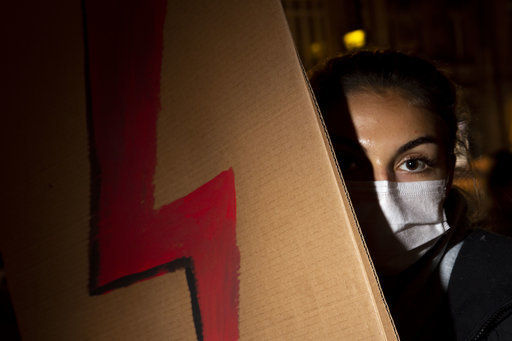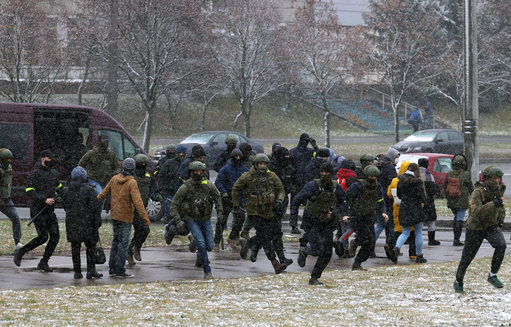Belarus's most prominent Catholic Church leader has praised his country's Catholic mothers for helping safeguard the faith against “ungodliness and injustice”, as an opposition spokesman urged the Church to consider mediating in search for a solution to the country's crisis.
“The prayer of generations of mothers, who managed to preserve the faith and pass it on to their children in inhumane conditions, has also played an important role in our Church's revival,” said Archbishop Tadeusz Kondrusiewicz, who announced his resignation on 3 January, just 10 days after returning from four months' exile after secret regime talks with Vatican negotiators.
“The miracle of calming the storm at sea remains exceptionally important in the Church's current life and activity, as we seek God's help amidst our own life storms, and the storms of ungodliness and injustice that seek to sink the ship of the Church.”
The 75-year-old archbishop, who handed over his Minsk-Mohilev archdiocese to Dominican bishop Kazimir Velikoselets at a Mass on 24 January, was preaching on Saturday in Minsk's Holy Rock church to the Mothers in Prayer movement, amid continuing police suppression of protests against the August re-election of President Alexander Lukashenko, which has not been recognised by Western governments.
He said he was grateful for spiritual support since August, when he was barred from re-entering Belarus, but also bitterly regretted the “great lack of prayer” currently facing society.
“Just as a person physically suffocates without air, so he suffocates spiritually without prayer,” Archbishop Kondrusiewicz told members of the Catholic movement, founded two decades ago. “In such difficult times, the Church in Belarus needs your testimony and help. Prayer reaches the heavens and never goes unheeded when needed for spiritual improvement and salvation. The Belarus Church is grateful for your quiet but firm service and witness to reviving and strengthening the faith, especially among the young.”
Speaking last week from exile, President Lukashenko's main challenger, Sviatlana Tsikhanouskaya, warned an informal UN Security Council meeting the situation was deteriorating in Belarus, and urged a halt to the regime's “violence and lawlessness”, including media censorship and internet shutdowns.
Meanwhile, an opposition advisor told The Tablet there had been “no public explanation” of the deal struck in December by Archbishop Claudio Gugerotti and the Vatican's current nuncio, Archbishop Ante Jozic, in enabling Kondrusiewicz to return, but said hopes were high the Catholic Church could play a role in securing peace.
“The Holy See has a very special potential, which could be used to facilitate a political consensus on many matters,” Uladzimir Astapenka, who resigned as a Belarus ambassador in Latin America last September in protest against Lukashenko's re-inauguration, said during an online debate last week. “The efforts made in Kondrusiewicz's case have again proved this, and I would not rule out the use of such services in finding a political solution to the crisis here.”
Preaching in Vitebsk on Sunday, Archbishop Kondrusiewicz said Jesus Christ had used authority and power “not to rule and control people, but to free them from the influence of evil spirits”, adding that his teachings could serve as a “spiritual vaccine” against “immorality, corruption and social injustice”, as well as fear of the unknown future.
“We need God's power and ability to build a civilisation of peace rather than violence, life rather than death, love rather than hatred,” the archbishop told a congregation in the city's Holy Spirit church. “Many revolutions in human history have changed the face of the world, but none have changed the spiritual face of man, only the revolution of Jesus Christ.”
The Belarus bishops' spokesman, Fr Yuri Sanko, told The Tablet there had so far been “no suggestion” of any government concessions to the Belarus Church in return for Archbishop Kondrusiewcz's retirement, adding that he had no information about any concrete changes or improvements.
“The archbishop was very highly regarded here for devoting so much time and effort to people, and it's important he'll still be with us,” said the Minsk-based priest, whose Church's four dioceses, with over 900 priests and religious, account for around 15 percent of Belarus's population of 9.4 million. “There'll be no restriction on his movements or capacity to say Mass and preach. Although his ministry will now be purely pastoral, he will be remaining active.”



 Loading ...
Loading ...